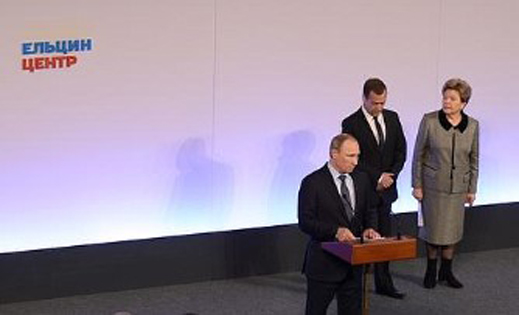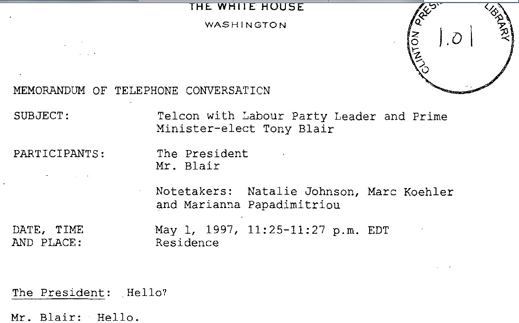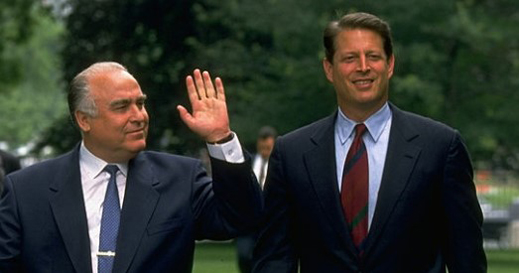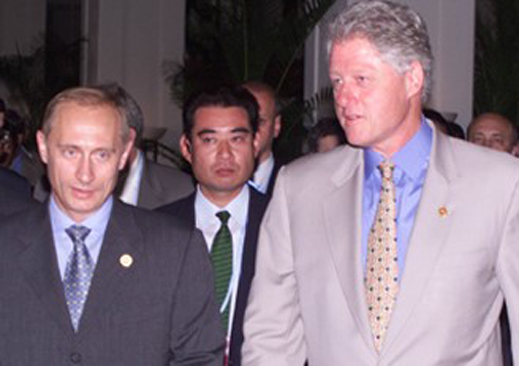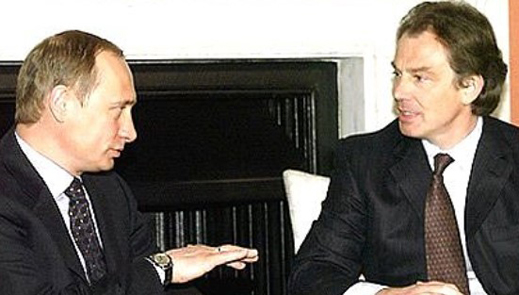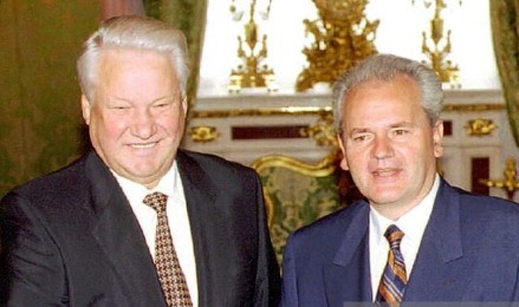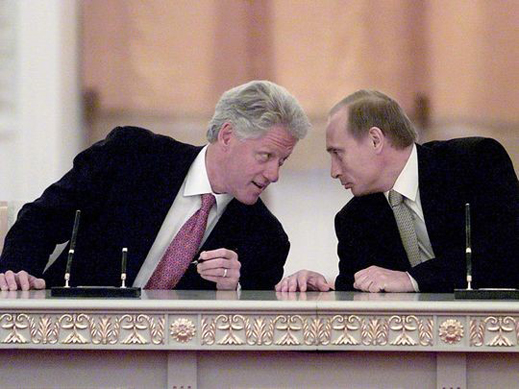In 2011 heeft de NWO een subsidie verstrekt voor onderzoek naar Conspiracy.
Het zou in 2015 klaar moeten zijn.
Maar ik vermoed dat het zelfs nu nog niet klaar is.
Ik heb voorlopig niet de tijd om het verder uit te zoeken.
Ik plaats hieronder enkele zaken die ik later kan onderzoeken.
Hier de aankondiging door het NWO:
Zapplog doet er schamper over:
http://zaplog.nl/zaplog/article/lekker_gesubsidieerd_zaplog_bijhouden
prof. Stef Aupers is er bij betrokken:
Het NWO schrijft:
We willen weten: 1 wat zijn de belangrijkste conspiracy theorieëm?
2. Waarom worden mensen aangetrokken tot deze theorieën ?
...... this project aims to study 1) the main narratives, themes and topics of contemporary conspiracy culture in the Netherlands and 2) how affinity with conspiracy discourse can be explained.
Ze denken dat de conspiracy adepten vooral mensen zijn die hun oude geloof in God of Politiek zijn verloren, in conspiracies vluchten voor houvast: " We hypothesize that particularly those who find themselves unstuck from the religious and politico-ideological pillarized moorings of the past turn to conspiracy culture for solace from modernity's cultural discontents. "
Eén jaar nadat het proefschrif klaar had moeten zijn is er nog niks gepubliceerd, behalve een artikel van de promovendus en van een betrokken professor. ( Zie onder )
Uit de samenvating blijkt dat er nog niks bekend is, na 5 jaar onderzoek. Enkel zaken die U en ik al wisten:
1 Al die conspiracy lieden zijn verschillend van elkaar.
2. Ze zien zichzelf niet als conspiracy adept. Ze zien zichzelf als rationeeel iemand.
Dat lijkt me niet vreemd: Al 50 jaar wordt er volop propaganda gemaakt voor het idee dat je zielig en dom bent als je in een samenzwering gelooft. De meeste mensen willen zichzelf dus niet met zo'n etiket op hun voorhoofd zien.
( Ondergetekende , J.V. heeft er totaal geen moeite mee: ik ben een trotse Conspiracy Adept. Zoals Gilad Atzmion zichzelf als 'Proud self-hating jew' wil omschrijven. )
Ik krijg de indruk dat het hele project is vastgelopen.
Maar wie weet: in de bio van Harambam lezen we dat hij nog steeds met zijn these bezig is.
Hier het artikel uit 2016:
Noot: Het CIA document, memo 1035-960 ontbreekt in de litteratuurlijst. ( Memo 1035-960)
=========================================
‘I Am Not a Conspiracy Theorist’: Relational Identifications in the Dutch Conspiracy Milieu
Abstract
Despite their popularity and normalization, the public image of conspiracy theory remains morally tainted. Academics contribute by conceiving of conspiracy theorists as a coherent collective: internal variety is sacrificed for a clear external demarcation. Drawing on ethnographic fieldwork in the Netherlands, we explore variation in the conspiracy milieu through people’s own self-understanding. More particularly, we study how these people identify with and distinguish themselves from others. The analysis shows that they actively resist their stigmatization as ‘conspiracy theorists’ by distinguishing themselves from the mainstream as ‘critical freethinkers’. The trope ‘I am not a conspiracy theorist’ is used to reclaim rationality by labelling others within the conspiracy milieu the ‘real’ conspiracy theorists. Secondly, their ideas of self and other make three groups apparent: ‘activists’, ‘retreaters’ and ‘mediators’. Conspiracy culture, we conclude, is not one monolithic whole, but rather a network of different groups of people, identifying with different worldviews, beliefs, and practices.
References
| Aaronovitch D (2010) Voodoo Histories: How Conspiracy Theory Has Shaped Modern History. London: Vintage. Google Scholar | |
| Alexander JC (2003) The Meanings of Social Life: A Cultural Sociology. Oxford: Oxford University Press. Google Scholar CrossRef | |
| Aupers S (2012) ‘Trust no one’: Modernization, paranoia and conspiracy culture. European Journal of Communication 26(4): 22–34. Google Scholar Link | |
| Barkun M (2006) A Culture of Conspiracy: Apocalyptic Visions in Contemporary America. Berkeley: University of California Press. Google Scholar | |
| Bauman Z (1987) Legislators and Interpreters: On Modernity, Post-Modernity and Intellectuals. Cambridge: Polity Press. Google Scholar | |
| Bauman Z (1995) Life in Fragments: Essays in Postmodern Morality. Oxford: Blackwell. Google Scholar | |
| Beck U (1997) Ecology and the disintegration of the institutional power. Organization & Environment 10(1): 52–65. Google Scholar Link | |
| Becker H (1963) Outsiders: Studies in the Sociology of Deviance. New York: The Free Press. Google Scholar | |
| Berger PL (1967) The Sacred Canopy: Elements of a Sociological Theory of Religion. Garden City, NY: Doubleday. Google Scholar | |
| Berger PL, Luckmann TL (1966) The Social Construction of Reality: A Treatise in the Sociology of Knowledge. New York: Doubleday. Google Scholar | |
| Bratich J (2008) Conspiracy Panics: Political Rationality and Popular Culture. Albany: State University of New York Press. Google Scholar | |
| Brubaker R, Cooper F (2000) Beyond ‘identity’. Theory and Society 29(1): 1–47. Google Scholar CrossRef | |
| Byford J (2011) Conspiracy Theories: A Critical Introduction. New York: Palgrave Macmillan. Google ScholarCrossRef | |
| Campbell C (2002 [1972]) The cult, the cultic milieu and secularization. In: Kaplan J, Lööw H (eds) The Cultic Milieu: Oppositional Subcultures in an Age of Globalization. Walnut Creek, CA: Altamira Press. Google Scholar | |
| Campbell C (2007) The Easternization of the West: A Thematic Account of Cultural Change in the Modern Era. Boulder, CO: Paradigm. Google Scholar | |
| Charmaz K (2006) Constructing Grounded Theory: A Practical Guide Through Qualitative Analysis. Thousand Oaks, CA: Sage. Google Scholar | |
| Cooley CH (1902) Human Nature and the Social Order. New York: Scribner’s. Google Scholar | |
| Dean J (1998) Aliens in America: Conspiracy Cultures from Outerspace to Cyberspace. Ithaca, NY: Cornell University Press. Google Scholar | |
| Elias N (1978) What is Sociology? New York: Columbia University Press. Google Scholar | |
| Emirbayer M (1997) Manifesto for a relational sociology. American Journal of Sociology 103(2): 281–317. Google Scholar CrossRef | |
| Falzon MA (ed.) (2009) Multi-Sited Ethnography: Theory, Practice and Locality in Contemporary Research. Farnham: Ashgate. Google Scholar | |
| Fenster M (1999) Conspiracy Theories: Secrecy and Power in American Culture. Minneapolis: University of Minnesota Press. Google Scholar | |
| Foucault M (2006) History of Sexuality, volume 1. London: Penguin. Google Scholar | |
| Geertz C (1973) The Interpretation of Cultures: Selected Essays. New York: Basic Books. Google Scholar | |
| Giddens A (1991) Modernity and Self-Identity: Self and Society in the Late Modern Age. Palo Alto, CA: Stanford University Press. Google Scholar | |
| Gieryn TF (1999) Cultural Boundaries of Science: Credibility on the Line. Chicago, IL: University of Chicago Press. Google Scholar | |
| Glaser BG, Strauss AL (1967) The Discovery of Grounded Theory: Strategies for Qualitative Research. Chicago, IL: Aldine. Google Scholar | |
| Goffman E (1959) The Presentation of Self in Everyday Life. Garden City, NY: Doubleday. Google Scholar | |
| Goffman E (1963) Stigma: Notes on the Management of Spoiled Identities. Englewood Cliffs, NJ: Prentice-Hall. Google Scholar | |
| Hall S, DuGay P (eds) (1994) Questions of Cultural Identity. London: Sage. Google Scholar | |
| Harambam J, Aupers S (2015) Contesting epistemic authority: conspiracy theories on the boundary of science. Public Understanding of Science 24(4): 466–480. Google Scholar Link | |
| Heelas P (1996) The New Age Movement. Oxford: Blackwell. Google Scholar | |
| Hofstadter R (1966) The Paranoid Style in American Politics and Other Essays. New York: Knopf. Google Scholar | |
| Houtman D, Aupers S (2007) The spiritual turn and the decline of tradition: the spread of post-Christian spirituality in fourteen Western countries (1981–2000). Journal for the Scientific Study of Religion 46(3): 305–320. Google Scholar CrossRef | |
| Houtman D, Aupers S, De Koster W (2011) Paradoxes of Individualization: Social Control and Social Conflict in Contemporary Modernity. Farnham: Ashgate. Google Scholar | |
| Husting G, Orr M (2007) Dangerous machinery: ‘Conspiracy theorist’ as a transpersonal strategy of exclusion. Symbolic Interaction 30(2): 127–150. Google Scholar CrossRef | |
| Jenkins R (2014) Social Identity. New York: Routledge. Google Scholar | |
| Knight P (2000) Conspiracy Culture: From Kennedy to the X-Files. New York: Routledge. Google Scholar | |
| Marcus GE (ed.) (1999) Paranoia Within Reason: A Casebook on Conspiracy as Explanation. Chicago, IL: University of Chicago Press. Google Scholar | |
| Matza D (1969) Becoming Deviant. Englewood Cliffs, NJ: Prentice-Hall. Google Scholar | |
| Mead GH (1934) Mind, Self, and Society. Chicago, IL: University of Chicago Press. Google Scholar | |
| Melley T (2000) Empire of Conspiracy: The Culture of Paranoia in Postwar America. Ithaca, NY: Cornell University Press. Google Scholar | |
| Oliver JE, Wood TJ (2014) Conspiracy theories and the paranoid style(s) of mass opinion. American Journal of Political Science 58(4): 952–966. Google Scholar CrossRef | |
| Pickering M (2001) Stereotyping: The Politics of Representation. New York: Palgrave. Google Scholar CrossRef | |
| Pipes D (1997) Conspiracy: How the Paranoid Style Flourishes and Where it Comes From. New York: The Free Press. Google Scholar | |
| Popper KR (2013 [1945]) The Open Society and its Enemies. Princeton, NJ: Princeton University Press. Google Scholar | |
| Ritzer G, Jergenson N (2010) Production, consumption, prosumption: The nature of capitalism in the age of the digital ‘prosumer’. Journal of Consumer Culture 10(1): 13–36. Google Scholar Link | |
| Robins RS, Post JM (1997) Political Paranoia: The Psychopolitics of Hatred. New Haven, CT: Yale University Press. Google Scholar | |
| Roeland J, Aupers S, Houtman D, De Koning M, Noomen I (2010) The quest for religious purity in New Age, Evangelicalism and Islam: Religious renditions of Dutch youth and the Luckmann legacy. In Giordan G (ed.) Annual Review of the Sociology of Religion, Volume 1: Youth and Religion. Leiden: Brill, pp. 289–306. Google Scholar CrossRef | |
| Showalter E (1997) Hystories: Hysterical Epidemics and Modern Culture. New York: Columbia University Press. Google Scholar | |
| Simmel G (1950) The Sociology of Georg Simmel, trans and ed. Wolff KH. Glencoe, IL: The Free Press. Google Scholar | |
| Sunstein CR, Vermeule A (2009) Conspiracy theories: Causes and cures. The Journal of Political Philosophy 17(2): 202–227. Google Scholar CrossRef | |
| Uscinski JE, Parent JM (2014) American Conspiracy Theories. Oxford: Oxford University Press. Google Scholar CrossRef | |
| Ward C, Voas D (2011) The emergence of conspirituality. Journal of Contemporary Religion 26(1): 103–121.Google Scholar CrossRef | |
| Wood MJ, Douglas KM (2013) ‘What about building 7?’: A social psychological study of online discussion of 9/11 conspiracy theories. Frontiers in Psychology 4: 409. Google Scholar CrossRef, Medline |
Author biographies
Jaron Harambam is currently finishing his PhD at the Rotterdam Centre for Cultural Sociology of the Erasmus University Rotterdam. His main research is on conspiracy theories having carried out extensive ethnographic fieldwork in the Dutch conspiracy milieu. He has recently published in Public Understanding of Science (2015) about why conspiracy theorists contest the epistemic authority of science. His broader sociological interests lie at the intersections of science, popular culture and religion. He is an editor of the Dutch peer-reviewed journal Sociologie, co-edited a special issue on actor-network theory (2014), and has published on the commercialisation of virtual worlds (2011) and cultural beliefs about online sociality (2013).
Stef Aupers is professor of media culture at the Institute for Media Studies at the University of Leuven in Belgium. Most of his work deals with post-traditional forms of religion, spirituality and conspiracy culture and, particularly, the way such beliefs are mediatized. Stef has published in journals such as Journal for the Scientific Study of Religion, European Journal of Cultural Studies, Public Understanding of Science and European Journal of Communication. His latest international books are Religions of Modernity: Relocating the Sacred to the Self and the Digital (Brill, 2010) and Paradoxes of Individualization: Social Control and Social Conflict in Contemporary Modernity (Routledge, 2011).

